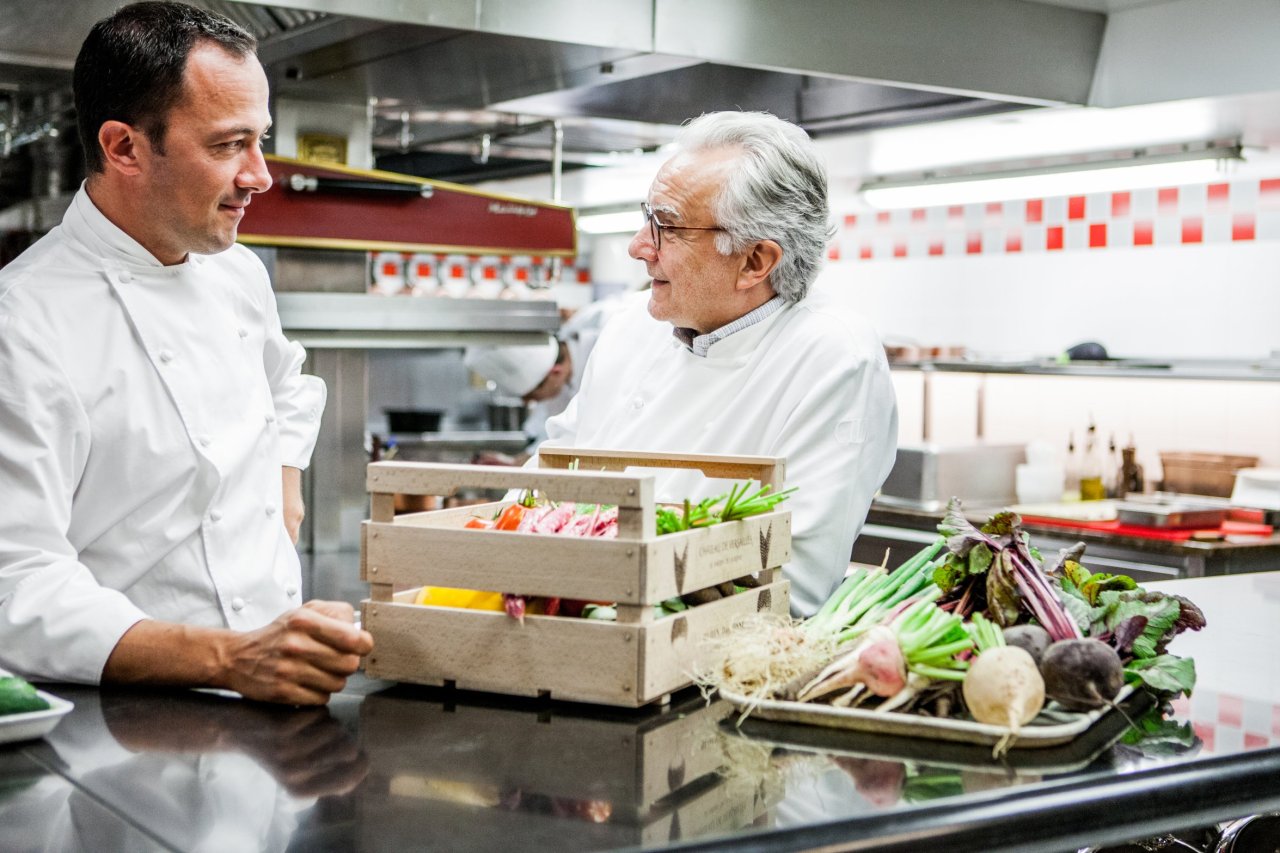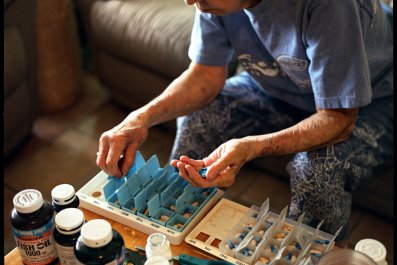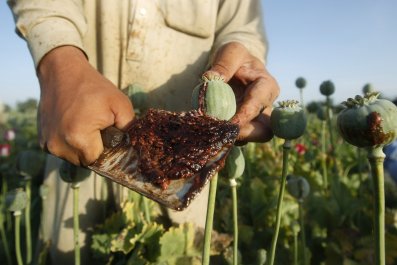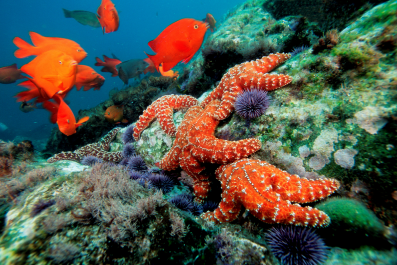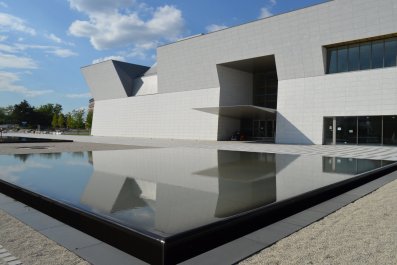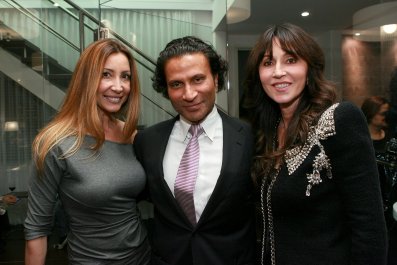Farewell Chateaubriand, goodbye confit de canard. As Alain Ducasse, one of the high priests of haute cuisine, announced he was taking meat off the menu at his restaurant at the Plaza Athénée hotel in Paris, vegetarians everywhere sensed victory. One more chef had seen the light. One British tabloid headline screamed, "Is this the end of haute cuisine?" before listing the humbler dishes that would now be served, such as black rice cooked in the oven with shellfish, calamari and octopus. Even the high-minded Guardian, beloved of readers with a social conscience, claimed that Ducasse was "ditching duck, veal, and steak".
Ducasse reflects the growing trend in haute cuisine to take vegetables more seriously, highlighting them at the expense of the more conventional trio of meats: beef, pork and lamb. Instead, the chef has decided to focus more on fish, vegetables and cereals. Watch out for steamed langoustines served cold with Osciètre Caviar at €180 or turbot in Champagne sauce, watercress and turnips at a mere €135. Card-carrying carnivores won't go hungry, however, meat is merely sidelined; every day there will still be at least two meat and poultry options on a separate menu.
Curiously, the desire of chefs to focus more on vegetables has nothing to do with vegetarianism – it is merely an acknowledgment that for too long vegetables have been relegated below dead animals. There is nothing humble about these top-drawer vegetables. What is even more extraordinary is that there is only one vegetarian restaurant in the world producing renowned cuisine – Tony Lu's Fu He Hui in Shanghai. Lu is not a vegetarian himself and owns several other famous restaurants that serve fish, meat and poultry. Until 2010, there was a superb vegetarian restaurant in California called Ubuntu. However its chef, Jeremy Fox, has since returned to serving meat and fish.
Ducasse has always acknowledged green power, producing exquisite vegetable dishes, especially at his flagship Le Louis XV restaurant in Monaco. For more than two decades, he has championed the high-quality produce grown in the south of France. The "greening" of his Plaza Athénée may also reflect Ducasse's need to differentiate it from his other three-star Star Michelin restaurant at Le Meurice in Paris.
He also owes much to the godfather of haute cuisine vegetables, Alain Passard of L'Arpège in Paris. He renounced red meat in 2001 in the wake of the mad cow disease in Britain and created some of the most inventive dishes imaginable merely using vegetables. His simple starter of tomato gazpacho and mustard ice cream ranks amongst the most intense and pleasurable dishes I have ever eaten. Passard told me that this apparently straightforward dish took him three months of experimentation to create. To ensure quality, he maintains three separate kitchen gardens in northern France, which send their produce early each morning courtesy of the French TGV fast train service straight to Paris. L'Arpège, however, is not a vegetarian restaurant – he still offers fish and game.
Paris has yet another talent in the person of Yannick Alléno. Highly experimental, he cooks vegetables using the sous-vide technique to intensify their flavour and then extracts sauces from them. He has just taken command of the renowned three-Michelin star restaurant Ledoyen, on the Champs-Élysées. "If you taste my food now, it is completely different from what I did before. The main difference is the extraction of vegetable flavours in my sauces. I am also working with fermentation of vegetables, which was not done for decades in France because it was one of the forbidden "ten commandments" of nouvelle cuisine."
In Britain, the chef Simon Rogan is the best-known advocate of green cuisine. At L'Enclume, his two-Michelin star establishment in Cumbria, he maintains his own kitchen garden, frequently serving at least a third of purely vegetable courses on his 20-course tasting menu. "The idea of having menus of vegetables was a bit of a blasphemy when I started doing it. Things have changed over the years and now people realise there are far more interesting things to do with them," Rogan says. "It's very easy for us because we have a fantastic larder up here and we are well and truly ready to substitute the protein dishes. I prefer to call them protein-free menus rather than vegetarian because you get meat-eaters who fancy a change, so it's just another menu."
Rogan recently opened Fera, the flagship restaurant at Claridge's in London, where he also serves a predominantly vegetable menu. Not everyone is a convert, however. Some critics claim that it is impossible to attain the culinary heights of France if you only use British vegetables, since French produce is regarded as superior. Rogan disputes this, except for some fruits such as tomatoes, which thrive in a hotter climate. "I was going to set up a kitchen garden closer to London, but then I thought that our vegetables in the north are better than anything that can be grown in the south, which we believe in 100%. It is because they take longer to mature – we grow the best potatoes, the best root vegetables and asparagus – right up there against anything else in the world."
All of which goes to show that vegetables often require more effort and experimentation than slapping a steak on the grill. That's the view of René Redzepi, chef at Copenhagen's Noma, currently number one in the World's 50 Best Restaurants awards. He leads the field in fermenting vegetables which produces an astonishing intensity of flavour.
Redzepi began experimenting with fermentation after a particular harsh winter just after the restaurant opened in 2004. One farmer delivered some old carrots that had been stored for six months. In desperation, Redzepi decided to imagine that these were the very best ingredients in his kitchen. "We roasted these carrots for ever in butter and it was extraordinary and was the best carrot I had ever had. It was transformed into a paste in the inside and the skin was deep and crunchy and leathery. That was our cue to start investigating different ways of cooking all vegetables. Only this year we discovered a new way of preparing potatoes. If you have soft potatoes in storage they will sprout and through the other potatoes, came these tiny little baby potatoes which are nourished not by soil but the mother potatoes and they have an extraordinary deep earthy flavour."
Redzepi knows it is not going to be easy to convert people to his way of thinking: "It is so difficult to innovate with products that are still seen as a garnish – you need a totally different mind-set. Vegetables are going to be far more important and fermentation is a way of incorporating those rich umami flavours that everybody looks for when having a delicious meal. Don't forget that fermentation creates coffee, chocolate, bread, wine, beer and soy sauce. It is a way of making sure that vegetables can actually be just as delicious as a wonderful cut of steak."


